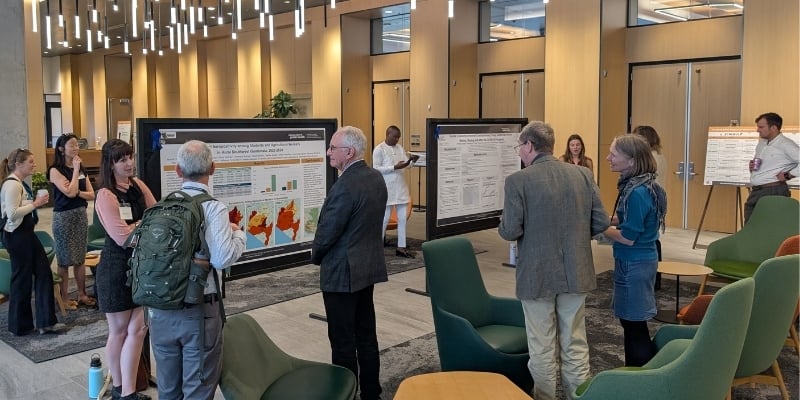Dr. Jaime Butler-Dawson, from the Center for Health, Work, & Environment (CHWE), has received a Career Development Award from the National Institutes of Health. The three-year K01 grant from the National Institute of Environmental Health Sciences will provides support to examine the environmental determinants of kidney injury in female sugarcane workers and female community members in Guatemala.
Dr. Butler-Dawson is a research instructor in environmental and occupational health and is a founding member of the Climate, Work and Health Initiative. Her new study is part of CHWE’s efforts to identify and prevent exposures that may contribute to the epidemic of chronic kidney disease of unknown origin (CKDu) in Central America.
The research will be informed by Dr. Butler-Dawson’s interdisciplinary mentorship team which includes Drs. John Adgate, Lee Newman, and Katherine James, from the ColoradoSPH Environmental & Occupational Health Department; Richard Johnson, in the Division of Renal Diseases and Hypertension at the University of Colorado Anschutz Medical Campus; and James Crooks, in the Division of Biostatistics and Bioinformatics at ColoradoSPH and the Department of Biomedical Research at National Jewish Health. Training during the grant will provide Dr. Butler-Dawson with further background in environmental epidemiology, exposure science, leadership training, and modeling multiple concurrent environmental stressors.
CKDu has been well-described in males in the current literature. “Females, however, have rarely been studied and their impacts from the disease remain unknown,” explains Butler-Dawson. “The information gained from this study will address this knowledge gap and describe the epidemic in females and their specific exposures and risk factors.”
Dr. Butler-Dawson was the lead author of two recent papers examining occupational and non-occupational risk factors for kidney injury among male sugarcane workers in Guatemala. These studies found that exposures to metals may contribute to kidney toxicity in workers even at lower levels of exposure.
“Given the potentially high exposures in Guatemalan women from in-home cooking, their communities, and agricultural sources, this is an ideal population to explore airborne pollutant exposures and kidney injury,” says Butler-Dawson. “The goal of this study is to improve the health of this vulnerable population by identifying and reducing exposures that contribute to CKDu.”
Dr. Butler-Dawson will be working with Pantaleon, one of Latin America's largest agribusinesses. Thanks to this collaboration, there is a unique opportunity to disseminate study findings beyond research publications to reach international businesses and community organizations.






